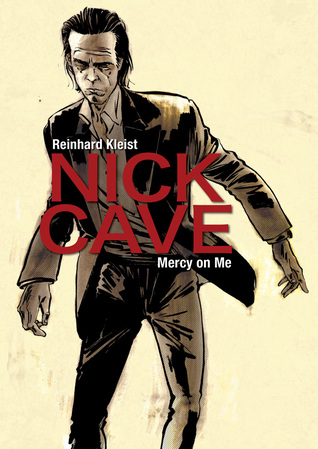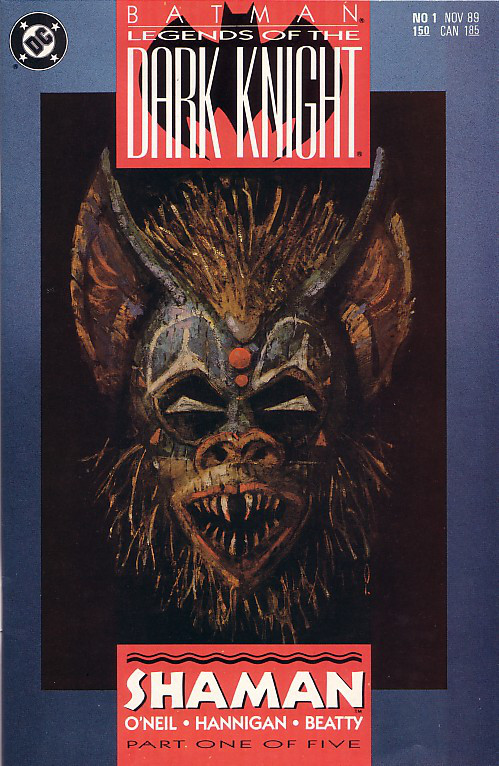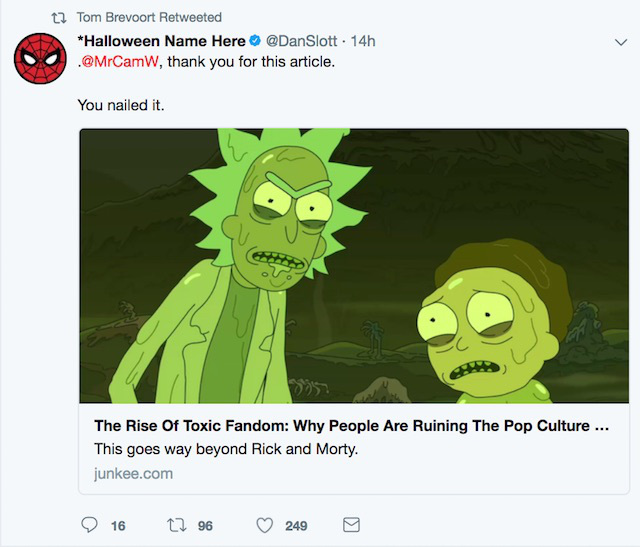 Nick Cave: Mercy On Me by Reinhard Kleist.
Nick Cave: Mercy On Me by Reinhard Kleist.
My rating: 3 of 5 stars
So let’s get this out of the way first: I am a Nick Cave fan. Not a rabid one, no – I don’t believe he excretes perfect songs into the world, and almost every album he’s associated with could do with having about a third chopped off it – but I like him well enough. I’ve seen him play a couple of times, and have most of the records. Hell, I’ve even read his books a couple of times. (Well, not the Bunny Munro one. )
But there’s something important to know: I like him while disliking him.
And this kind of informs my take on Reinhard Kleist’s book, because though it’s an interesting conceit and it’s done pretty well, it buys into the sort of worshipful treatment of the guy that is part of what I dislike the most about how he’s cultivated these days.
I’m kind of fine with the idea of the man firming up his legend for the future, even if it’s something the award-rejecting “my muse may spook!” guy of earlier years would’ve pissed on. I can get that band members come and go and some may be treated shabbily or not. I just find it weird that he’s gone from being part of a thrilling, occasionally dangerous band to being some kind of goth poet laureate, placed beyond middle-aged criticism, with his fans collaborators in firming up the myth of Aussie genius when it’s more a case of Faulkner plus Berlin plus drugs plus Jebus. (Let’s face it, the crowds back home were the reason Cave et al fucked off in the first place.)
(Actually, this piece by Anwen Crawford covers my concerns in a much more elegant way than I could muster.)

ANYWAY. The point is that I find that Cave is often considered beyond criticism, and I often wonder how much of this is tied in with him being the soundtrack to the youth (or the cooler older siblings) for a lot of those that call the critical shots, or who want to be convinced that their investment in same was worth it. I understand this, and I’m sure I’m guilty of it with bands. But Kleist’s work here, I think, falls into the trap of uncritically lauding the bloke when it could’ve been a bit more nuanced.
The work is a mixture of fact, fantasy and what happens when song characters leak into the world. Parts of the story take place in the framework of songs – we see the prisoner from ‘The Mercy Seat’, we experience a drive to CERN, we hang out by a river with a soon-to-be-dead Elisa Day, and we watch Jangling Jack fuck up his trip to the big smoke, amongst others. These sections are effective to varying degrees, and I like the idea that the man’s creations are aware of him and desire some kind of reckoning, even though it’s a bit too on-the-nose close to being an take on ‘We Call Upon the Author’.
The historical parts are interesting if you know the history of Cave’s bands. I found it enjoyable to see Pew et co drinking their way through half-fucked gigs, and was rather taken with the fact that both Mick Harvey and Blixa Bargeld’s hair is spectacular whenever they’re pictured in the work.
(The illustration style in the book – lots of marker? – is a mixed bag. When it’s good, it is great, and Kleist is great at salting scene-setting details through the frame, and uses a lot of darkness to solid effect. But when it’s bad, it seems pretty dire, especially when illustrating real people. I’m willing to forgive the shonky illustration of fictional characters, as I suspect that’s an editorial choice rather than a fault in execution, but still it often drew me out of what was going on.)
I just find the book presents its story in a very positive way, even the fucked parts. Sure, the Cave presented here is a bit of an arsehole: he fucks up bathrooms while off his tits, he’s a junkie and a cheater and uncompromising and truculent as fuck. But it’s all sort of filtered through the lens of viewing the work as being all-time great in total. Which, in some cases it is (fuck me, but ‘Tupelo’ is one for the ages, and to be fair he and his band have written more than a couple of classics) but it’s not the entire story.
I’m not sure how privy Cave was to the creation of the book: he’s thanked in it, and offers a fairly good quote for the back cover. I don’t know if he collaborated on the book particularly much, but I imagine it’s a fairly positive portrait overall, so he’d not be that unhappy.
I’m glad I read the book; I am. I just find that as I get older, Cave brings up more issues for me. I can’t be as uncritically worshipful as I was when I was younger (and yes, hadn’t read any Faulkner). I know a bunch about the guy, and Kleist’s work provides some nice portraits of some of that – the move to Brazil, the recording of Tender Prey, the trips to rehab and the frenetic typing – but I felt overall it was a little too worshipful of the subject. That’s on me. But fervent fans will absolutely love it.
I didn’t love it, but I do appreciate the work, and I did enjoy my time with the book. It’s worth a look if you’ve been into the guy at some point, whether it was in the artist’s big-hair or porno-mo phases.
My Goodreads profile is here.
Advertisements Share this:




